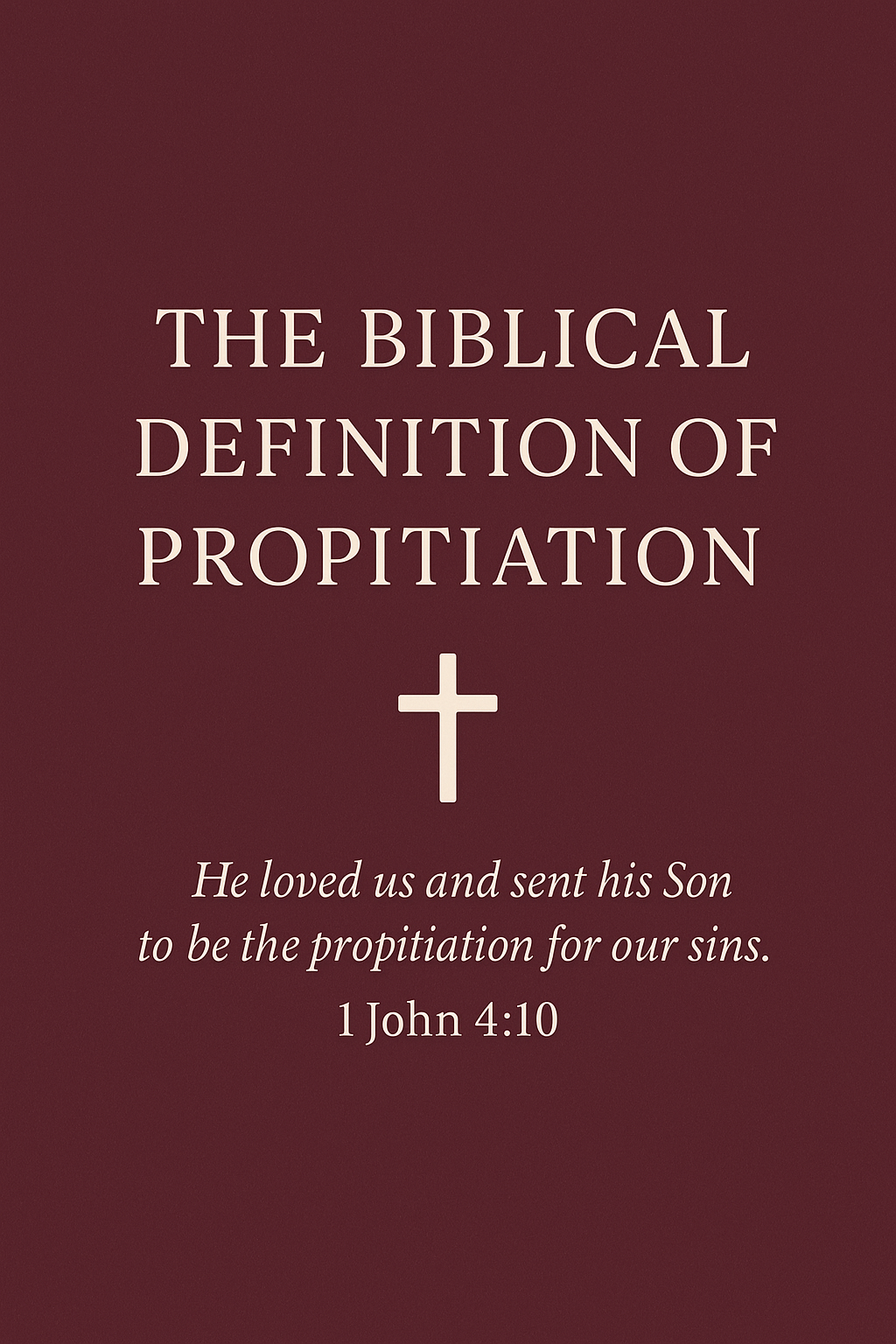Biblical Definition of Discernment: Understanding God’s Wisdom for Life
The biblical definition of discernment is the Spirit-enabled ability to distinguish between truth and error, right and wrong, and to think God’s thoughts after Him in every area of life157. This profound gift is indispensable for every believer seeking to live faithfully in a world filled with competing voices and moral confusion.
What Is Discernment According to the Bible?
Discernment, in its simplest biblical sense, is the ability to make careful distinctions—between truth and error, good and evil, wisdom and folly75. The Greek word often translated as “discern” in the New Testament is anakrino, meaning “to distinguish, to separate out by diligent search, to examine”5. Discernment is closely related to wisdom and is foundational for living a life pleasing to God.
“Discernment is learning to think God’s thoughts after Him, practically and spiritually; it means having a sense of how things look in God’s eyes and seeing them in some measure ‘uncovered and laid bare’”1.
Key Biblical Passages on Discernment
The Bible is rich with passages that highlight the importance and nature of discernment. Here are some foundational texts:
Psalm 119:66: “Teach me good judgment and knowledge, for I believe in your commandments.”
The Hebrew word for “judgment” here means “taste”—the ability to make discriminating judgments1.Hebrews 4:12: “For the word of God is living and active... discerning the thoughts and intentions of the heart.”
God’s Word itself is the ultimate standard for discernment5.1 Kings 3:9: Solomon’s prayer: “Give your servant therefore an understanding mind... that I may discern between good and evil.”
Solomon’s discernment became legendary for its wisdom and moral clarity5.1 Corinthians 2:14-15: “But the natural man does not accept the things of the Spirit of God... they are spiritually discerned. The spiritual person judges all things...”
True discernment is possible only through the Holy Spirit25.Philippians 1:9-10: Paul prays that believers’ “love may abound... with knowledge and all discernment, so that you may approve what is excellent...”
Discernment is essential for spiritual maturity and fruitful living5.Romans 12:2: “Do not be conformed to this world, but be transformed by the renewal of your mind, that by testing you may discern what is the will of God...”
Discernment comes through a renewed mind shaped by God’s truth.
The Nature and Purpose of Biblical Discernment
1. Discernment Is Rooted in God’s Character
God Himself is the ultimate discerner, seeing all things as they truly are (Hebrews 4:13). Jesus demonstrated perfect discernment, knowing what was in people’s hearts (John 2:24–25)1. As followers of Christ, we are called to grow in this same ability, reflecting God’s wisdom in our decisions and judgments.
2. Discernment Is a Spiritual Gift
Paul lists discernment as a gift of the Holy Spirit (1 Corinthians 12:10), particularly the ability to distinguish between spirits—a vital safeguard against false teaching and spiritual deception3. However, all believers are called to pursue and practice discernment as part of spiritual maturity.
3. Discernment Is Essential for Christian Living
Discernment is not optional for the Christian; it is required for:
Protecting against false teaching:
“Do not believe every spirit, but test the spirits to see whether they are from God...” (1 John 4:1)7.Making wise decisions:
“But examine everything carefully; hold fast to that which is good; abstain from every form of evil” (1 Thessalonians 5:21-22)7.Maintaining purity and unity in the church:
“Hate what is evil; cling to what is good” (Romans 12:9)5.Growing in spiritual maturity:
“Solid food is for the mature, for those who have their powers of discernment trained by constant practice...” (Hebrews 5:14).
How Is Biblical Discernment Developed?
1. Through the Holy Spirit
True discernment is ultimately the work of the Holy Spirit, who leads believers into all truth (John 16:13)2. Without the Spirit’s illumination, spiritual realities remain hidden, and the things of God seem foolish to the natural mind (1 Corinthians 2:14)25.
2. Through the Word of God
Discernment flourishes in an environment of faithful Bible study and teaching27. God’s Word is the standard by which all things are tested and discerned (Acts 17:11; 2 Timothy 3:16-17). No amount of prayer, obedience, or good intentions can substitute for diligent study of Scripture2.
3. Through Prayer and Dependence on God
Solomon’s example shows the importance of humbly seeking God for discernment (1 Kings 3:9). The Psalmist prays, “Give me discernment that I may understand your statutes” (Psalm 119:125)5. Prayer acknowledges our dependence on God for wisdom and understanding.
4. Through Spiritual Maturity and Practice
Discernment is cultivated over time as believers grow in faith, pursue godly wisdom, and practice distinguishing good from evil (Hebrews 5:14)2. It involves moral integrity, the pursuit of godly wisdom, and learning from faithful teachers and examples.
Why Is Discernment So Important?
Discernment is vital because:
It guards against deception and false teaching:
Without discernment, believers are vulnerable to error and spiritual danger (Ephesians 4:14; Colossians 2:8)7.It leads to wise and godly living:
Discernment enables believers to make choices that honor God and reflect His character (Proverbs 3:21-24; James 3:17)5.It protects the purity of the gospel and the church:
The church must distinguish truth from heresy to maintain its witness and unity (Galatians 1:6-9; 2 Timothy 4:3-4).It brings spiritual safety and blessing:
“Preserve sound judgment and discernment... they will be life for you... Then you will go on your way in safety...” (Proverbs 3:21-23)5.
Practical Steps to Grow in Biblical Discernment
Immerse yourself in Scripture:
Make Bible reading and study a daily priority. Seek to understand the whole counsel of God.Pray for wisdom and discernment:
Ask God regularly for a discerning heart and mind (James 1:5; Psalm 119:125).Depend on the Holy Spirit:
Yield to the Spirit’s leading and be sensitive to His conviction and guidance (John 16:13).Seek godly counsel and teaching:
Learn from mature believers, faithful pastors, and sound biblical resources.Practice discernment in daily life:
Test all things by the standard of God’s Word. Make it a habit to examine teachings, trends, and decisions through a biblical lens (1 Thessalonians 5:21-22).Cultivate humility and teachability:
Be willing to admit when you are wrong and open to correction from God’s Word and others.
Common Pitfalls and Dangers
Judgmentalism vs. Discernment:
Jesus warns against hypocritical judgment (Matthew 7:1), but also commands us to be discerning (Matthew 7:6)1. True discernment is humble, not self-righteous.Neglecting the Word:
Seeking discernment apart from Scripture leads to error. The Holy Spirit works through the Word, not apart from it2.Overconfidence in Human Wisdom:
Discernment is not mere cleverness or intuition. It is rooted in God’s revelation and empowered by the Spirit.
Biblical Examples of Discernment
Solomon:
Asked God for discernment to govern wisely (1 Kings 3:9-12).Jesus:
Demonstrated perfect discernment, knowing people’s hearts and motives (John 2:24-25)1.Paul:
Exercised discernment in confronting false teaching and guiding churches (Acts 16:16-18; Galatians 2:11-14).The Bereans:
Examined the Scriptures daily to test Paul’s teaching (Acts 17:11).
Conclusion: The Call to Discernment
The biblical definition of discernment is clear: it is the Spirit-empowered ability to distinguish truth from error, good from evil, and to think and live according to God’s wisdom. In a world of confusion and compromise, discernment is not a luxury—it is a necessity for every follower of Christ.
May our prayer echo that of the Psalmist:
“I am your servant; give me discernment that I may understand your statutes” (Psalm 119:125)5.















